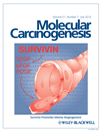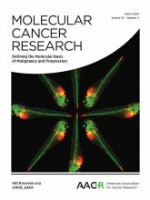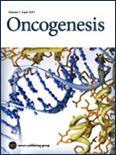
JOURNAL OF MAMMARY GLAND BIOLOGY AND NEOPLASIA
Scope & Guideline
Exploring the Frontiers of Cancer Biology
Introduction
Aims and Scopes
- Mammary Gland Development and Physiology:
Research on the biological processes underlying mammary gland development, including cellular differentiation, hormonal regulation, and physiological functions. - Breast Cancer Biology and Pathophysiology:
Investigation into the molecular and cellular mechanisms of breast cancer, including tumor microenvironment interactions, signaling pathways, and genetic factors. - Preclinical Models and Experimental Techniques:
Development and utilization of various models (e.g., murine, bovine) and experimental techniques (e.g., organoids, 3D bioprinting) to study mammary gland biology and breast cancer. - Immune Response and Cancer Interaction:
Exploration of the immune landscape in the context of mammary gland biology and breast cancer, including immune cell contributions to tumor development and progression. - Comparative Studies Across Species:
Comparative analyses of mammary gland biology and breast cancer across different species to enhance translational research and understanding of the disease.
Trending and Emerging
- Single-Cell Analysis Techniques:
There is a notable increase in studies utilizing single-cell transcriptomic and spatial analysis to understand cellular heterogeneity in mammary glands and breast tumors, which is critical for personalized medicine. - 3D Bioprinting and Spatial Engineering:
Emerging methodologies such as 3D bioprinting for modeling mammary epithelial cell cultures are gaining attention, allowing for more sophisticated in vitro studies of tissue architecture and function. - Immunotherapy and the Tumor Microenvironment:
Research focusing on the immune microenvironment and its role in breast cancer progression and treatment response is becoming increasingly prominent, reflecting a shift towards immunotherapy strategies. - One Health Approach to Breast Cancer:
The exploration of male breast cancer within a One Health framework indicates a growing interest in understanding breast cancer from a broader biological and societal perspective. - Comparative Oncology:
Studies comparing mammary gland biology and cancer across species, particularly between canines and humans, are on the rise, emphasizing translational research opportunities and insights.
Declining or Waning
- Traditional In Vivo Models:
Research relying heavily on traditional in vivo models (e.g., rat models) for breast cancer studies may be waning as more advanced techniques such as organoid systems and patient-derived xenografts gain traction. - Basic Histological Techniques:
Studies focusing exclusively on basic histological analyses without integrating advanced imaging or molecular techniques are becoming less frequent, as the field moves towards more comprehensive approaches. - Single-agent Chemotherapy Studies:
Research concentrating solely on the efficacy of single-agent chemotherapies in breast cancer may be declining as the focus shifts toward combination therapies and personalized medicine approaches.
Similar Journals

Molecular & Cellular Oncology
Exploring the cellular mechanisms of oncogenesis.Molecular & Cellular Oncology, published by Taylor & Francis Inc, is a vital academic journal dedicated to the exploration of cancer biology through the lens of molecular and cellular mechanisms. Since its inception in 2014, the journal has played a crucial role in disseminating innovative research findings that address the fundamental aspects of cancer research and molecular medicine. With its current ranking in Scopus placing it in the Q3 quartile for both Cancer Research and Molecular Medicine, the journal provides a platform for groundbreaking studies that push the boundaries of our understanding of oncogenesis and therapeutic interventions. Although the journal operates under a subscription model, its dedication to high-quality peer-reviewed research makes it an essential resource for researchers, professionals, and students aiming to contribute to or stay updated in the rapidly evolving field of oncology. As we approach the culmination of its converged years in 2024, Molecular & Cellular Oncology aims to continue fostering collaborations and insights that advance cancer research on a global scale.

Annual Review of Cancer Biology
Illuminating Breakthroughs in Cancer BiologyAnnual Review of Cancer Biology is a pivotal journal published by Annual Reviews, specializing in the rapidly evolving field of cancer research. With an impact factor positioned in the distinguished Q1 quartile of Cancer Research, Cell Biology, and Oncology categories, this journal ensures that it showcases the highest quality of scholarly contributions. Indexed in Scopus, it ranks among the top in its fields, reflecting its strong influence and relevance, with remarkable percentiles indicating its esteemed position within the research community. Although not an open-access journal, it provides a comprehensive platform for advancing the frontiers of cancer biology through rigorously curated reviews, highlighting key developments, breakthroughs, and future directions that inform both academia and clinical applications. As a valuable resource for researchers, professionals, and students, the Annual Review of Cancer Biology serves as an essential guide for understanding and addressing the complexities of cancer biology today.

FASEB BioAdvances
Transforming Insights into Impactful ResearchFASEB BioAdvances, published by WILEY, is an esteemed open-access journal dedicated to advancing the fields of biochemistry, molecular biology, and physiology. Since its inception in 2019, the journal has rapidly established a significant presence within the academic community, boasting an impressive impact factor reflective of its Q2 and Q3 standings across various categories, including Biochemistry, Genetics and Molecular Biology, Cancer Research, Molecular Medicine, and Physiology. The journal aims to disseminate high-quality research and innovative findings to enhance the understanding of biological processes, making it a vital resource for researchers, professionals, and students alike. With its commitment to open access, FASEB BioAdvances ensures that groundbreaking research is available to a global audience, facilitating collaboration and exploration in these rapidly evolving scientific domains.

MOLECULAR CARCINOGENESIS
Illuminating the Science Behind Cancer ProgressionMOLECULAR CARCINOGENESIS is a prestigious academic journal published by Wiley, dedicated to advancing the understanding of the molecular basis of cancer. Established in 1988, this journal serves as a vital resource for researchers and professionals in the fields of cancer research and molecular biology. With an impressive impact factor reflecting its significance in the Q2 category for both Cancer Research and Molecular Biology, it stands out for its high-quality, peer-reviewed articles that explore innovative research, novel findings, and emerging trends in carcinogenesis. Although the journal currently does not offer open access options, it remains accessible to the academic community through numerous institutional subscriptions. Positioned in the United States and contributing to the global discourse on cancer research, MOLECULAR CARCINOGENESIS is an essential publication for anyone engaged in the study of cancer at the molecular level.

Cancer Reports
Advancing cancer research for a healthier tomorrow.Cancer Reports, published by WILEY, is an esteemed open-access journal dedicated to the field of oncology and cancer research. With a focus on disseminating impactful research findings since its transition to fully open access in 2021, Cancer Reports aims to facilitate knowledge sharing among researchers, clinicians, and healthcare professionals globally. The journal is positioned within the Q3 quartile for both Cancer Research and Oncology categories as of 2023, reflecting its commitment to quality and relevance in a competitive publishing landscape. With an ISSN of N/A and an E-ISSN of 2573-8348, the journal showcases studies across diverse aspects of cancer biology, treatment modalities, and patient care strategies. Located in the United Kingdom at 111 River St, Hoboken 07030-5774, NJ, Cancer Reports strives to contribute to the advancement of cancer research and improve health outcomes for patients worldwide, making it a pivotal platform for scholars and practitioners in the oncology community.

MOLECULAR CANCER RESEARCH
Innovating Cancer Research for Tomorrow's TherapiesMOLECULAR CANCER RESEARCH, published by the American Association for Cancer Research, stands as a pivotal journal in the fields of cancer research, molecular biology, and oncology. With an impressive impact factor and recognized as a Q1 journal in its respective categories for 2023, it serves as an essential resource for researchers, professionals, and students aimed at advancing our understanding of cancer mechanisms and therapies. The journal, identified by the ISSN 1541-7786 and E-ISSN 1557-3125, provides a platform for cutting-edge research and clinical applications, emphasizing innovation and collaboration within the scientific community. With its focus on high-quality, peer-reviewed articles, MOLECULAR CANCER RESEARCH is vital for anyone looking to stay abreast of significant advancements in cancer biology and treatment strategies. For more details and to access the journal's content, please visit the publisher's link.

Journal of the National Cancer Center
Transforming Hematology and Oncology Through Innovation.Journal of the National Cancer Center, published by Elsevier, serves as a pivotal platform in the fields of Cancer Research, Hematology, and Oncology. With an ISSN of 2667-0054, this esteemed journal is recognized for its exceptional quality, achieving a Q1 ranking in all categories as of 2023. Its impressive Scopus rankings place it among the top journals in its field, notably holding rank #11 in Medicine - Hematology and rank #36 in Medicine - Oncology. Addressed from Amsterdam, Netherlands, the journal aims to disseminate cutting-edge research and innovative findings that advance the understanding and treatment of cancer, bridging gaps between laboratory discoveries and clinical applications. Although it follows a subscription model, the journal's commitment to accessibility ensures that valuable knowledge reaches healthcare professionals and researchers globally. By fostering collaboration and facilitating knowledge exchange, the Journal of the National Cancer Center is indispensable for those dedicated to combating cancer and enhancing patient care.

Oncogenesis
Advancing cancer research for a healthier tomorrow.Oncogenesis is a prestigious open access journal, published by SpringerNature, dedicated to advancing our understanding of cancer biology and molecular mechanisms of oncogenesis. Since its inception in 2012, this journal has quickly established itself as a leading platform for innovative research, being ranked in the Q1 quartile in both Cancer Research and Molecular Biology categories for 2023. With an admirable impact factor that reflects its exceptional quality, Oncogenesis is indexed in Scopus, holding notable rankings in both Molecular Biology and Cancer Research, placing in the 87th and 83rd percentile respectively. The journal not only facilitates the dissemination of groundbreaking research but also encourages collaboration among scientists and healthcare professionals across the globe. By offering open access to its articles, Oncogenesis ensures that vital findings reach a diverse audience, fostering a deeper dialogue and understanding in the fight against cancer. Based in the United States but with a global reach, the journal remains committed to publishing high-impact studies that contribute to the advancement of knowledge in the realms of oncology, biochemistry, and genetics.

Genes & Diseases
Advancing knowledge at the intersection of genetics and disease.Genes & Diseases, published by KEAI PUBLISHING LTD, is a premier open-access journal dedicated to advancing the fields of genetics, biochemistry, and molecular biology. Established in 2014 and headquartered in Beijing, China, this journal has quickly risen to prominence, securing a place in the prestigious Q1 quartile in Biochemistry and Genetics (clinical), as well as Q2 in Cell Biology and Q1 in Molecular Biology as of 2023. With a commitment to disseminating cutting-edge research, Genes & Diseases serves as a critical platform for researchers, professionals, and students alike, ensuring that high-quality scientific work is openly accessible to the global community. The journal's exceptional impact is underscored by its selective Scopus rankings, which reflect its influence and relevance in key scientific domains, making it an essential resource for those exploring the intersections of genetics and disease pathology.

Molecular Cancer
Transforming cancer knowledge into clinical practice.Molecular Cancer, published by BMC, stands as a premier open access journal dedicated to advancing our understanding of cancer biology, treatment, and prevention since its inception in 2002. With an impressive Q1 ranking in the domains of Cancer Research, Molecular Medicine, and Oncology, this journal occupies a significant position in the academic landscape, emphasizing high-quality research that influences clinical practices and future studies. The journal is indexed in leading databases with exceptional Scopus ranks, reflecting its rigorous peer-review process and impactful contributions to the field, where it ranks in the top 2-3 positions across various relevant categories. Based in the United Kingdom, Molecular Cancer offers researchers worldwide a valuable platform for disseminating innovative findings that drive the biomedical community forward. The journal's open access model ensures that groundbreaking research is freely accessible, fostering collaboration and knowledge sharing among professionals, students, and academics alike. Explore cutting-edge developments in cancer research through Molecular Cancer and join a community committed to improving patient outcomes and advancing scientific discovery.